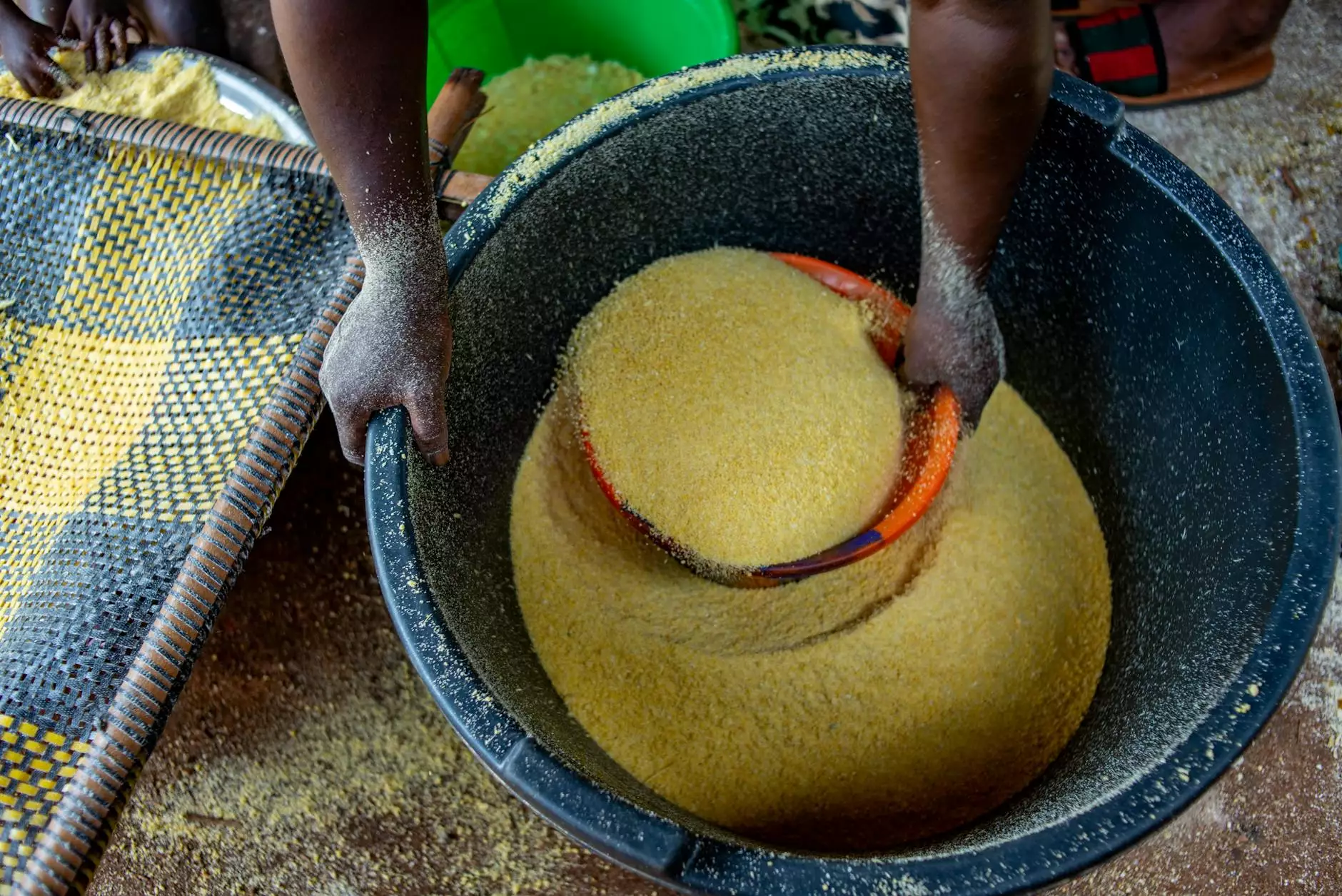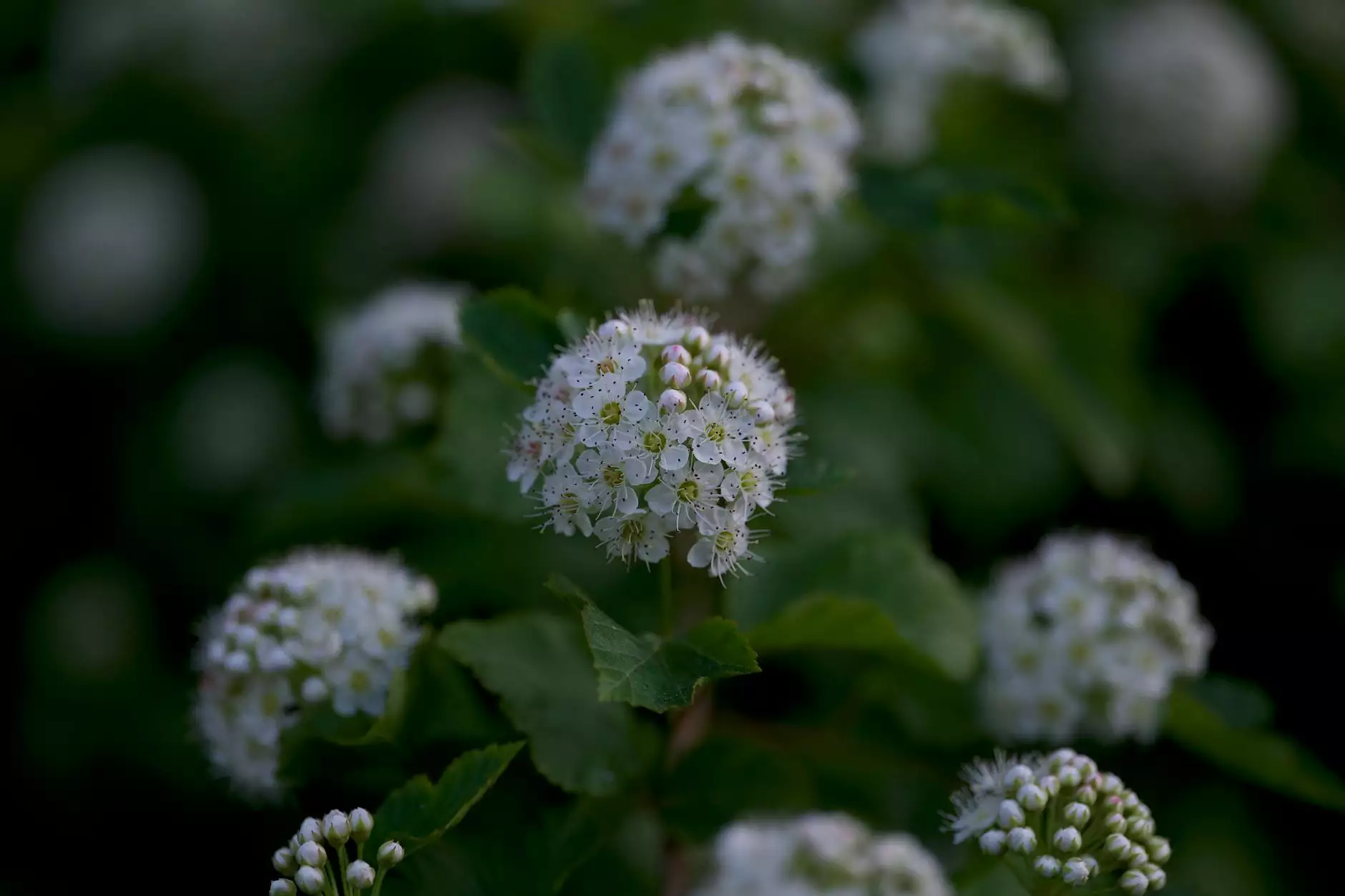Cornmeal as Weed Control: A Natural Solution for Your Garden

Maintaining a lush, vibrant garden can be a daunting task, particularly when it comes to combating pesky weeds. Fortunately, for those who prefer an organic approach, cornmeal as weed control is an innovative and effective option that not only suppresses unwanted plants but also enriches your soil. In this extensive guide, we will explore the numerous benefits, applications, and considerations associated with using cornmeal in your garden.
Understanding Cornmeal: What Is It?
Cornmeal is a finely ground flour made from dried corn. It is a staple ingredient in many kitchens, known for its versatility in cooking. However, its applications extend far beyond culinary use. Cornmeal is rich in carbohydrates and provides essential nutrients, making it an excellent addition to both food products and organic gardening practices.
The Science Behind Cornmeal as Weed Control
This humble ingredient contains a compound called corn gluten meal (CGM), which acts as a natural pre-emergent herbicide. When cornmeal is applied to the soil, it releases these compounds that inhibit the germination of weed seeds. As a result, it prevents the establishment of undesirable plants while supporting the growth of your desired crops.
How Does It Work?
To effectively utilize cornmeal as weed control, understanding its mechanism is crucial. When CGM comes into contact with soil moisture, it triggers a series of biochemical processes that interfere with the sprouting of weed seeds. This action typically lasts for a significant duration, making cornmeal a long-lasting solution.
Benefits of Using Cornmeal for Weed Control
There are numerous advantages to using cornmeal in your weed control strategy:
- Non-Toxic and Safe: Unlike chemical herbicides, cornmeal is safe for children and pets, making it ideal for family gardens.
- Soil Health: It contributes to soil fertility, enhancing the microbial activity that promotes healthy plant growth.
- Cost-Effective: Cornmeal is relatively inexpensive and readily available at most grocery or health food stores.
- Environmentally Friendly: Using cornmeal reduces the reliance on synthetic chemicals, aligning with eco-friendly gardening practices.
- Versatile Application: It can be used in various garden settings, including lawns, flower beds, and vegetable gardens.
How to Apply Cornmeal as Weed Control
Applying cornmeal effectively requires a few simple steps:
1. Prepare Your Garden
Before application, clear the area of existing weeds. If possible, remove any roots to prevent regeneration. This step ensures that the cornmeal as weed control method works optimally.
2. Choose the Right Time
The best time to apply cornmeal is in early spring before the major weed germination kicks in. It can also be applied in the fall to prevent winter annuals from sprouting.
3. Application Process
Spread the cornmeal evenly over the soil surface. A rate of about 20 pounds per 1,000 square feet is typically recommended. Incorporate it lightly into the soil or allow it to rest on top since it needs moisture to activate its herbicidal properties.
4. Water the Area
After application, water the treated area thoroughly. This step helps to activate the corn gluten meal and ensure its effectiveness as a weed control method.
5. Monitor and Maintain
After the application, keep an eye out for any weed resurgence. While cornmeal is effective, it may not eliminate all weeds entirely. Handpulling any remaining weeds can help maintain the garden's health.
Considerations When Using Cornmeal
While cornmeal is an effective weed control method, there are several important considerations to keep in mind:
- Timing is Critical: CGM must be applied before the weed seeds germinate. If weeds have already sprouted, cornmeal will not be effective.
- Impact on Desired Plants: Although cornmeal largely targets only weed seeds, caution is advised if you plan to sow seeds in the same area after applying cornmeal. It can impede the germination of other seeds as well.
- Soil Conditions: Cornmeal works best in moist soil, so consider your local climate and watering practices when applying.
Cornmeal vs. Conventional Weed Control Methods
When it comes to weed control, traditional methods often involve synthetic chemicals that can harm beneficial insects and soil health. Here’s a comparison of cornmeal with conventional methods:
1. Safety
Cornmeal: Natural and safe for all garden inhabitants.Conventional Chemicals: May pose health risks to pets, children, and beneficial wildlife.
2. Environmental Impact
Cornmeal: Biodegradable and promotes a healthy ecosystem.Conventional Chemicals: Can contaminate water supply and disrupt local ecosystems.
3. Long-Term Effects
Cornmeal: Enhances soil health over time.Conventional Chemicals: May lead to soil degradation and loss of microbial life.
Innovative Uses of Cornmeal in the Garden
Beyond its role as a weed controller, cornmeal also offers other benefits in gardening:
- As a Fertilizer: Cornmeal can be used to provide additional nutrients to the soil, supporting larger, healthier plants.
- Enhancing Soil Structure: Applying cornmeal helps break up compacted soil, improving aeration and water retention.
- Companion Planting: When used alongside certain crops, cornmeal creates an environment that may repel harmful pests.
Where to Buy Cornmeal for Weed Control
For those interested in incorporating cornmeal into their gardening practices, sourcing is easy. Here are some tips on where to find it:
- Health Food Stores: Many organic and health-oriented grocery stores stock cornmeal, often in both conventional and organic varieties.
- Farmers' Markets: Local farmers’ markets may offer freshly milled cornmeal that can support local agriculture.
- Online Retailers: Numerous online platforms sell cornmeal, providing options for bulk purchasing to save costs.
Conclusion
Incorporating cornmeal as weed control into your gardening routine presents a unique opportunity to enhance your garden's health while effectively managing weeds. This natural solution aligns well with the growing trend towards sustainable gardening practices that prioritize ecological balance. By understanding how to properly apply cornmeal and considering the numerous benefits it offers, you can cultivate a beautiful, thriving garden free from harmful chemicals.
As you embark on your journey to a healthier garden, remember that the choices you make today will impact not just your garden’s immediate health but also its long-term sustainability. Embrace the power of cornmeal and watch your garden flourish organically.









